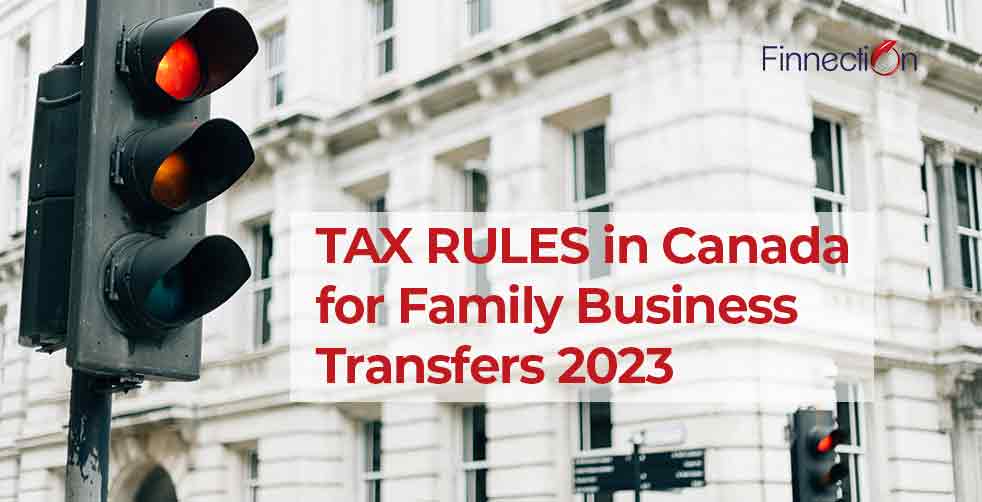In a significant development for the Canadian business landscape, the recently announced tax rules for family business transfers in 2023 have paved the way for a smoother and more seamless intergenerational transition of family-owned enterprises. These changes, set to take effect in the upcoming year, are poised to streamline the often complex and challenging process of succession planning, thus ensuring the continuity and vitality of family businesses across the nation.

Key Highlights of the Tax Rules:
The core focus of the new tax rules is to alleviate the financial burden on families involved in the transfer of business ownership within the same lineage. The measures are specifically designed to simplify the intricate taxation processes that typically accompany such transitions, thereby enabling families to navigate the transfer process with greater ease and efficiency. Some of the key highlights of the revised tax rules include:
Reduced Tax Burdens: The new rules provide for reduced tax rates for eligible family members involved in the transfer of businesses. This reduction in tax burdens aims to facilitate a smoother transition of ownership while safeguarding the financial stability and sustainability of the family enterprise.
Encouraging Succession Planning: By promoting proactive succession planning, the tax rules aim to encourage families to devise comprehensive strategies for the transfer of assets and control. This emphasis on planning allows families to effectively manage the transfer process, thereby ensuring the preservation of their legacy and the continued growth of the business.
Ensuring Business Continuity: With a focus on preserving the continuity of family businesses, the tax rules aim to minimize disruptions and instabilities that can arise during the transfer of ownership. By providing a supportive tax framework, the government aims to foster a business environment where the transition of leadership does not impede the operational efficiency or profitability of the enterprise.
Impact and Implications:
The introduction of these revised tax rules is expected to have a profound impact on the dynamics of family-owned businesses across Canada. By alleviating the financial strain associated with business transfers, the rules are likely to encourage more families to engage in effective succession planning, thereby ensuring the longevity and sustainability of their enterprises. This, in turn, is anticipated to contribute to the overall economic resilience and growth of the Canadian business landscape.
Furthermore, the simplified tax processes are set to alleviate the administrative complexities often associated with business transfers, enabling families to focus on the strategic aspects of succession planning rather than being entangled in cumbersome tax procedures. The newfound ease in navigating the tax implications is expected to encourage more families to take proactive steps toward securing the future of their businesses, thereby fostering a more stable and robust economic environment.
Looking Ahead:
As the Canadian business community prepares to embrace the changes ushered in by the revised tax rules for family business transfers in 2023, it becomes imperative for business owners to proactively engage with tax advisors and legal professionals to ensure full compliance with the amended regulations. By staying informed and taking proactive steps to align their businesses with the new tax framework, families can capitalize on the benefits offered by the revised rules while safeguarding the long-term sustainability and prosperity of their enterprises.
In conclusion, the updated tax rules signal the Canadian government’s commitment to supporting the continuity and growth of family businesses, thereby underlining the crucial role that these enterprises play in the nation’s economic landscape. By simplifying the transfer process and minimizing tax burdens, the new regulations aim to create an environment where the legacy of family businesses can thrive and endure, fostering a sustainable and vibrant business ecosystem for generations to come.
If you have any questions regarding tax rules in Canada, feel free to contact finnection via email at info@finnection.ca or call us at (647) 795-5462
Disclaimer: Above information is subject to change and represent the views of the author. It is shared for educational purposes only. Readers are advised to use their own judgement and seek specific professional advice before making any decision. Finnection Inc. is not liable for any actions taken by reader based on the information shared in this article. You may consult with us before using this information for any purpose.
